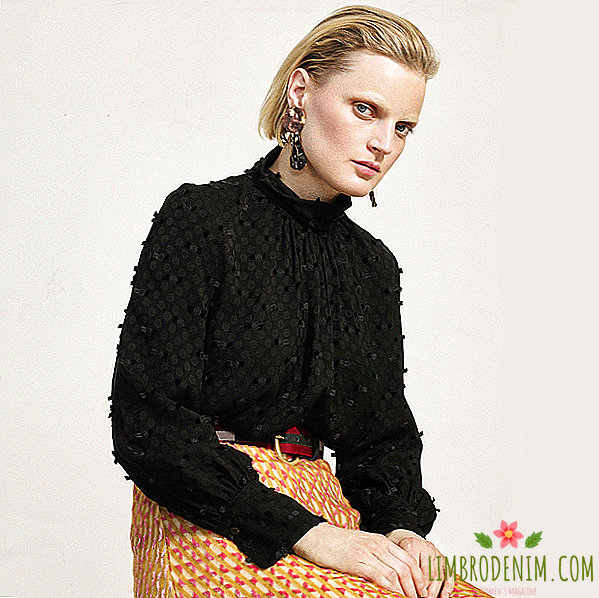Stop Fearing: Bad Myths About People With Down Syndrome
THE DESTINY OF PEOPLE WITH THE DOWN SYNDROME TODAY IS NOT SUCH AT ALL, like fifty or even twenty years ago: the duration and quality of their life has grown greatly, and an inclusive society no longer seems like something fantastic. Nevertheless, the syndrome still surrounds many stereotypes and myths. Understand where the truth is.

Down syndrome is not a disease
Down syndrome was first studied in detail by the British scientist John Langdon Down in 1866, but was described only after almost a hundred years in 1959. In human cells, as a rule, 46 chromosomes: 23 from the mother and 23 from the father. People with the syndrome have an extra 21st chromosome in each cell - all features of their appearance and state of health are associated with it.
Down syndrome is diagnosed in one of 700 (according to other data - 800) newborns. Most often, it is not associated with heredity and is a random violation - although in some cases it is explained by a hereditary genetic anomaly in one of the parents. In the 1970s, prenatal tests began to be done, and in the 1980s, studies began to predict the likelihood of a child with Down syndrome appearing in the mother.
With the introduction of technology and new ethical issues. Many women, having learned that their child will have such a syndrome, decide to terminate a pregnancy - Iceland can become the first country where such people will not be born in principle. All this may lead to even greater stigmatization of the syndrome holders. In Russian medical circles, Down syndrome is still called a disease, but activists do not recommend it - just like saying that a person “suffers” or “suffers” them. This is a condition that cannot be infected and cannot be cured, and the person diagnosed with it can live a full and interesting life.
Down syndrome in a child is not associated with the actions of the mother
The older the woman, the higher the probability of having a child with Down Syndrome: for example, according to the National Health Service of England, it is 1 in 1500 for a 20-year-old woman, 1 for 800-year-old, 1 to 100-year-old, and 1 for a 45-year-old. to 50. Nevertheless, it cannot be said that the only reason is this: a child with Down syndrome may appear in a woman of any age. According to Down Syndrome International, a charitable organization, children with the syndrome are more likely to be born to younger mothers - simply because women at this age, in principle, give birth more often. In addition, there is no evidence that any actions of the mother before or during pregnancy may affect the occurrence of the syndrome in the child.
People with Down syndrome look different
A certain set of external features is really associated with Down syndrome: a small nose, a small mouth, from which many children often have tongue protruding, wide-set eyes, a flatter neck, and shorter fingers and limbs than people without the syndrome. Newborns with Down syndrome are smaller than other babies, however, this difference smoothes out with age. In addition, many have reduced muscle tone.
At the same time, it is impossible to say that all people with Down syndrome look the same: it is possible that the features of appearance may appear differently and not every person with Down syndrome will have a full set of these characteristics. In the same way, it is impossible to make a diagnosis only on the child’s appearance: such characteristics require a more precise diagnosis. In addition, children with Down syndrome, like any other, are more like parents and relatives.

Baby with Down Syndrome will be able to breastfeed
In children with Down syndrome, muscle tone is often reduced (this phenomenon is called muscular hypotension), which greatly affects motor skills. With age, thanks to special exercises and training, the condition of the child can be improved, but in childhood it can cause additional difficulties - one of them is related to breastfeeding.
British actress Sally Phillips, whose son was diagnosed with the syndrome, recalls: "Babies with Down syndrome often have low muscle tone and find it harder to drink breast milk. We didn’t sleep at night until
I tried to feed him, but ten days after the birth the baby’s weight dropped from 3.6 kilograms to 1.3. But everyone kept telling me: “This is your first child, that's why you are so worried. Children always lose weight. "" Haley Goleniowska, the mother of a girl with Down syndrome, believes that many babies with the syndrome can eat breast milk. It took her three months to learn this: "Actually, thanks to this I had a lot to concentrate on during my short stay in the hospital. Because of this, I no longer felt so helpless. "
It is believed that breastfeeding can help the development of the jaw and muscles of the face in an infant with Down syndrome - although, of course, the decision about whether to breastfeed or a mixture, each family takes independently, depending on their capabilities and needs.
Life with Down syndrome will not be hard and painful
One of the main stereotypes about Down syndrome is that a full life is impossible with it. The development of certain diseases is indeed associated with the syndrome. People with Down syndrome are often born a week or two ahead of time; they can diagnose heart disease, blood disorders, problems with the digestive system, thyroid gland, hearing and vision; they may have dementia at an earlier age. Often, people with Down syndrome suffer more infections because their immune systems are less developed, and in childhood, in addition to the mandatory course of vaccinations, doctors may recommend that they do additional ones. But despite the fact that the syndrome is associated with certain diseases, they do not necessarily occur in every child and adult in full. The physician should pay special attention to the condition of such a person in order to notice possible health problems as early as possible - but each case is different.
This also includes the idea that people with Down syndrome can not live on their own. In the past, many of them, even in adulthood, actually stayed with their parents: the average life expectancy of people with the syndrome was short, so parents thought that they would likely outlive their children, and only boarding schools were the alternative. Now, with proper medical care, people with Down syndrome live much longer (if in 1983 their life expectancy was 25 years, today it is 60), and many of them at some stage decide to do it on their own - or almost independently, with the help of relatives or social workers.
"I see him tirelessly training to play football in the garden, trying to improve his handwriting or working on spelling - and I know that his desire for success will help him achieve everything he wants," said his son with Down syndrome. Caroline White, author of a famous blog. ”I am sure that Seb will grow up and find a job, will live independently of us — perhaps with support — will meet a loved one and his life will get better. Sometimes he needs help, but nothing will prevent him achieve their goals. " People with Down syndrome choose a variety of professions: some become actors or models, someone becomes more "traditional" way. True, in Russia, the employment of people with Down syndrome is still a problem: few people are still officially employed.

Children with Down syndrome are able to learn
For a long time, children with Down syndrome were considered untrained. "This myth is actively supported by research conducted in closed specialized institutions, but there any child cannot develop effectively because he is deprived of the main stimulus - parental love," - noted in the fund "Downside Up." Children with Down syndrome develop more slowly than children without it: they may need more time to learn to sit, stand, walk and talk - but in the end they still get all the necessary skills. The speed of learning depends on the particular child. In addition, many note that children with Down syndrome are good
emotional intelligence and empathy are developed. Nowadays, in the world, children with Down syndrome are being treated individually for their needs, depending on their needs. It may be more comfortable for someone to study at home, for someone at a specialized school where the process is tailored to the needs of children with such developmental characteristics, to someone at a regular school with different children. “The doctor said I’ll be lucky if I learn to tie my shoelaces or write my name,” said Karen Gaffney, an American who was diagnosed with Down syndrome. Now she has a degree and an honorary doctoral degree.
People with Down Syndrome are non-aggressive
Regarding the nature of people with Down syndrome, there are two polar myths. On the one hand, many believe that they can be dangerous to society and aggressive. On the other hand, people with Down syndrome are often called "sunny": it is believed that, on the contrary, they are always joyful and benevolent.
"The comment that people with Down syndrome are aggressive can most likely be heard from a person who either doesn’t know very well the specifics of the development of children with Down syndrome or has experience in dealing with people with the syndrome who are in government institutions - homes - boarding schools, psycho-neurological boarding schools: there you can meet a person who is completely withdrawn into himself, desperate to receive some kind of human attention (not to mention support), who is wary of everything unfamiliar because of his Shade limited social experience, and therefore sharply reacting to everything new, "- said the director of Family Support Center" Downside Up "Tatiana Nechaev. On the other hand, according to her, a person with Down syndrome, like any other, may show aggression in response to a provocation, a negative attitude that is not supported by anything, in order to protect himself.
According to Tatyana Nechaeva, for aggression from a child with Down syndrome can also accept cases when he reacts to the fact that they do not understand him: “Young children with Down syndrome already have social experience, impressions from the outside world, but they understand and know much more than they can tell. If we imagine that a small person with Down syndrome is trying to say something with the means available to him, and those around him do not understand, he will be offended. He may start to get angry and react in such a way that it will be regarded as aggression " .
Tatyana Nechaeva believes that there is a grain of truth in the notion of “sun children”. So, researcher Deborah Fiedler noted that children with Down syndrome, compared with other children, both with or without developmental features, smile much more often and are in a good mood, but by the age of 10-11, these figures are the same like other children. "Perhaps we can say that people with Down syndrome are more complacent than other people, but this does not mean that they never experience other feelings, such as bitterness or regret, do not get angry and do not get angry. Range of emotions that a person with the syndrome experiences Down's will be the same as other people, "says Tatyana Nechaeva.
Photo: Happy Socks (1, 2), Monki





